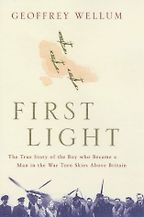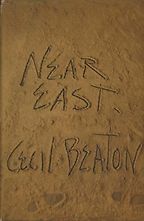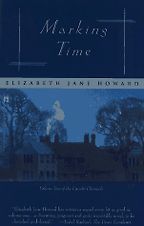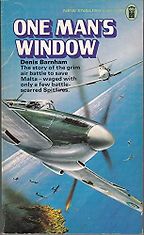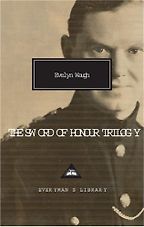There have been so many wars since 1945 – why do you think studying the Second World War is of such continuing importance and interest?
Certainly in terms of the British public, it was so all consuming. It affected every single man, woman and child in a way that other wars simply haven’t, not even the First World War. That was because the war came home. There were bombs being dropped over Britain and there was rationing in a way there wasn’t in the First World War. Also I think it was largely a moral war, or it certainly began that way. The British as a nation accepted that Nazism was a wrong that needed to be put right and eradicated. There was a justification for doing it, which has been less obvious with subsequent conflicts.
What first got you interested in it?
I have always loved that period and the interwar era. There is something about the period and its carpe diem attitude that I find really fascinating. I also always thought they were very stylish, and I loved all the clothes! My favourite book of all time is Brideshead Revisited, although I didn’t feel there was quite enough World War II in it to justify its inclusion here.
It is a period of immense human drama. There are all these eternal questions – had I been a young man at that time, what would I have done? Which regiment would I have joined, and how would I have coped with spending up to four years away from home? There is also the fact that the war was being fought in so many different locations. It really was a world war. You could go from the fjords and mountains of Norway to the jungles of Madagascar.
You mentioned what it might have been like for you as a young man in World War II. The author of your first book choice, an autobiography, was only 18 when he became one of the youngest fighter pilots in the Battle of Britain.
Geoff and I go back a long way. I have a strange, serendipitous connection to this book because when I was researching a wartime novel of my own, I went to interview a number of Battle of Britain pilots, and Geoff was one of them. We met in his local pub down in Cornwall, and while we were chatting over several pints of ale he happened to mention that he had written this book about 25 years earlier. He told me there was a chapter in it which was like a day in the life of a Battle of Britain pilot, and asked me if I would like to read it.
When I got back home I wrote to him and asked if I could see the whole manuscript. So he sent me the one and only manuscript, which had been sitting in his drawer. I read it and I was blown away by it. I thought it was incredible. I rang him back, explained that I worked for Penguin Books and asked if he wanted me to show it to a few people. He said yes. So I gave it to Antony Beevor’s editor who also loved it, and the manuscript got published. First Light went on to become the most successful book by a military writer in the first decade of the 21st century.
What was life like for Wellum when he was training to be a fighter pilot?
It was very exciting. There was just the right amount of danger when he was training. You could kill yourself quite easily in an aircraft, but there was incredible glamour. The air wasn’t clogged up with light aircraft and traffic controllers and all the rest of it. You got into your tiger moth and off you went. Flying was still in its infancy in the late 1930s. It was terribly thrilling and exciting to suddenly see the world from the sky.
But also very harrowing. Geoff once got lost at sea.
Yes. And everything changes when you suddenly find yourself in the Battle of Britain. It was incredibly harrowing. I can’t even begin to tell you how difficult it was, physically and mentally, to fly three times a day in those sorts of conditions – knowing that any moment might be your last.
Just three years into being a fighter pilot he was worn out and his war was at an end. What happened to him?
He stayed on just a bit too long with 92 Squadron in his first stint, then he had another command later on. By the time he went to Malta in August 1942 he was completely spent. Everyone has a bank of courage and mental toughness, and once it is spent it is spent. Unless you have a really good long rest, you can’t get over it. You need to manage it, and the problem with Geoff was that those signs weren’t picked up on.
Did he seem alright all those years later when you met him in the pub?
He is still damaged by his experience, but he is great fun as well. He still loves his pints, and I see him from time to time and consider him a friend. The success of his book was obviously a boost for him.
Your book, Dam Busters, is about some other legendary pilots from the Second World War. For those who don’t know, can you fill us in on the story?
The Dam Busters is one of the most extraordinary air raids of all times. It was just astonishing, not least because of the incredible skill that was required. You have to remember that this was a hastily put together squadron. They were given about six weeks in which to train, but many of them turned up late.
What was their mission?
Their mission was to destroy the main dams in the Ruhr area of Germany. To do this they had to drop a four tonne rotating bomb on a sixpence, and watch it bounce across the water for four hundred yards and hit the edge of the dam. Then the bomb would sink some 30 feet and explode, and that would cause the dam to breach. That was the idea.
You have to remember that these guys were used to operating at 18,000 feet, where quite frankly if they had got within a mile or two of the target they would have done pretty well. So to suddenly be flying at a hundred feet and to drop a bomb accurately from 60 feet is a very big ask. They were flying at night at one hundred foot, which is just unbelievably difficult. The only way you can navigate accurately is to occasionally go a little bit higher, take a fix and see where you are, then come down again. But that has all sorts of risks, because as soon as you go above a certain height you are in the realm of enemy radar.
There are many books and films about this episode. With all your research, have you discovered anything new?
It is a particularly British trait to be down on our achievements. I think it is part post-Empire guilt, and part our characteristic that we like to belittle our achievements. We do it with sports stars as well, and it was the same with the war. In terms of the Dam Busters after the film, subsequent historians have been keen to point out that the raid didn’t really do very much. They say it was a moral boost for us but really a waste of time considering the dam was rebuilt in five months. But what no one has ever bothered to look at was why the Germans had to rebuild it in five months, and the effort that took in terms of time and diversion of resources. So I think some historians have been looking at it in completely the wrong way. And in fact, by May 1943 we didn’t really need a moral boost because we had just won in North Africa.
So you think that strategically it was very important?
Strategically it was massively important, because it caused the most enormous diversion of resources and expense. The repair of the dams cost, in today’s terms, something like £5.6bn ($9bn).
And presumably it was a big psychological blow for the Germans.
Yes. The issue had limited impact in Britain – it was a good story, and everyone enjoyed it. But in Germany it was very important. The dams were hugely iconic structures there. They were very into the idea of the conquest of nature, and dams were seen as the German way of doing that. And these dams were absolutely enormous. They were known throughout Germany, so to have them destroyed is a bit like knocking down Tower Bridge or the Thames Barrier. So there was the psychological blow that somehow the enemy has got to us and destroyed us. For that reason alone, they had to rebuild them. But the main reason was that there was a water shortage in the summer of 1943, so if they didn’t rebuild them in time for the winter rain they would have a massive water shortage problem in 1944.
Get the weekly Five Books newsletter
There was a huge rush to get the dams rebuilt, and to do that they had to divert something like 70,000 men. New railway lines, railway stations and barrack blocks had to be put in place in lightning quick time in order to rebuild them. The engineering effort was quite astonishing, and the problem with that is that the war was going on at the same time. In July we invaded Sicily in the Mediterranean and had counterattacks going on in the Eastern Front, so this couldn’t have come at a worse time [for the Germans]. To put it into perspective some 10,000 workers were diverted from the Atlantic war, and when the Allies landed on June 6th 1944 there wasn’t much of a war to fight. One of the reasons for that was because all the workers were in Germany rebuilding the dam.
Next up is the photographer Cecil Beaton’s book Near East.
Cecil Beaton was my next door neighbour when I was growing up, and was one of the reasons why I got interested in this era in the first place. He died when I was 10 but I remember him very well – not least when one of our bantam cockerels escaped into his garden. We all went round searching for it in his beautiful flower beds, him with a huge straw hat on and a magnificent butterfly net that he was trying to catch it with. Another memory I have of him is Bianca Jagger being photographed in his garden.
The brilliant thing about him is that not only did he take really good photographs, but he was also the most fantastically perceptive and at times very caustic diarist. The gist of his diaries is in this book Near East. You can also find his original diaries in St John’s College, Cambridge. I have used them a lot for my books because his descriptions of people are absolutely on the button.
What kinds of things does he write about in Near East?
At the beginning of the war he didn’t know what to do. He was obviously not the military type, but then he found his niche as a Ministry of Information photographer, particularly attached to the Air Ministry. His most iconic photograph was of the blitz victim Eileen Dunne, the girl with the bandaged head clutching her teddy bear. It was on the front cover of Life magazine in September 1940, and was a massive PR coup for us. It really showed the Americans how Britain was suffering, and helped turn the tide on those there who were against going to war.
Next he did a series of photographs of some RAF fighter pilots, which actually included Geoff Wellum. Then he was sent to the Middle East, and was in Cairo in the spring of 1942. He went to places like Jordan, Iran, Iraq and Syria, as well as out into the Western desert. Near East chronicles this time, and there is just so much colour. The characters really come to life. You can smell the wind and the sand. It is a really wonderful book. Although it is unfortunate that his amazing photography rather overshadows his really quite brilliant writing ability.
Your next choice takes us to Britain in 1939, just as war was breaking out, with Elizabeth Jane Howard’s Marking Time.
I love the Cazalet books, and Marking Time is part of that series. I also loved the TV adaptation, which only ran for one series but was fabulously filmed and acted. This is the best book in the series. War is coming, and the Cazalet family are plunged into the situation. Like everyone else they have to deal with the start of the war, and the youngest son goes off to fight in Dunkirk. The book is cross generational, so you have the children and the patriarch and matriarch in this lovely old house in Sussex. It is obviously heavily autobiographical. But she is very clever, because the readers get to switch between the different points of view of all the main characters.
The book gives a real overview of how the war affected every generation.
Yes, it is steeped in authenticity. It all feels right. All the characters feel very real, because they were based on real people. I can’t think of another book which more vividly captures the mood at that time of an upper middle-class family on the cusp of war.
As well as writing history books, you also write fiction. As a historian what do you personally gain from reading novels about the Second World War, rather than history books?
Novels can fill in the gaps that the history books can’t. They can give you conversations, you get the mood and the atmosphere. Also, it is a sort of escapism. But I am quite a hard task master. If the period feel isn’t up to it then I will give up on a book. I love historical fiction, but it has to be right.
Next on your list is One Man’s Window, a novel by Denis Barnham.
This book has just been re-released as Malta Spitfire Pilot, but I think One Man’s Window is a better title. I came across this book when I was doing my book on the siege of Malta. Denis Barnham was quite a sensitive fellow, with an artistic temperament. He was a member of the Royal Academy [of Arts, in London] and a fine artist, and when he went out to Malta he kept a very detailed diary, which some years later he made into a book. Like Geoff Wellum’s book, I like the immediacy of it – the absolute insanity of living and fighting on Malta.
What was going on there at the time?
It was the height of the siege and the fighter pilots were getting more and more planes in slowly but surely. The island was starving. There was almost no food and almost no fuel. They were really up against it. It is a tiny island, smaller than the Isle of Wight. For them getting parts and spares – things you would take for granted in Britain – was very difficult. They no longer got three square meals a day or could go to the pub in the evening or have a day off a week. There was none of that, it was absolutely brutal. The heat was intense. Everyone was suffering from dysentery which everyone called Malta Dog. There was nothing to eat at all so stones of weight were just falling off them. They were being hammered by the German air force every single day. No other book that I have read captures that kind of madness and intensity of living and fighting that they were doing on Malta. The action accounts are second to none. I have never read a better account of air fighting than I have in that book.
Finally you have chosen Sword of Honour from Evelyn Waugh’s trilogy of novels about World War II, which was largely based on his own experiences as an army officer.
I love Evelyn Waugh as a writer. He is probably my favourite novelist. Like Elizabeth Jane Howard’s book, he really takes you there. This book brings that world to life in a wonderful way. He is very good on the eccentricity of it, and the madness of the war. There are so many things that we would take for granted that went out of the window in war time. It was a world without health and safety – a world of survival.
Waugh’s trilogy focuses on an aristocratic Catholic family, with the officer Guy Crouchback as the protagonist.
Guy is an everyman. He is just an ordinary good guy, a very sympathetic character, who finds himself in all sorts of terrible situations which are completely beyond his control. What is so brilliant about Waugh is that while Guy Crouchback is very ordinary and plain – a bit dull in a way – Waugh makes him a good and strong character, and it is very difficult to do that. And all around Crouchback there is an amazing supporting cast of extraordinary characters and individuals, with plenty of colour. I also like the scope of the book, which takes you from Italy to England to West Africa to Crete.
He visits many of the different theatres of war.
Yes. I think it is a complete masterpiece.
It is interesting that Waugh managed to make Guy so sympathetic, considering that Evelyn Waugh was meant to be a tricky character himself.
He was absolutely vile! I am sure he is one of the ones where you should never meet your heroes. In a way my admiration for him is even greater considering that he managed to pull it off.
You mentioned that Cecil Beaton’s photo of Eileen Dunne helped show the situation of the war to America. Overall, what do you think the Second World War did for Britain’s relationship with the US?
I think the antagonism between Britain and America as allies has been massively overplayed. I think that the antagonism that did exist existed at the high level, and was to do with personality clashes. But you would equally find personality clashes within American and British ranks.
Five Books interviews are expensive to produce. If you're enjoying this interview, please support us by donating a small amount.
One of the reasons why we have shared intelligence is the legacy of the Second World War, so I do think that there is a special relationship between Britain and America which stems from it. There was obviously a link between the US and Britain before, because America used to be a colony and all the rest of it. What the Second World War did was to bring us together and let Britain form a firmer relationship – which no one else in the world has been equal to – in terms of cosying up to the world’s leading power.
April 2, 2012. Updated: May 21, 2023
Five Books aims to keep its book recommendations and interviews up to date. If you are the interviewee and would like to update your choice of books (or even just what you say about them) please email us at [email protected]
